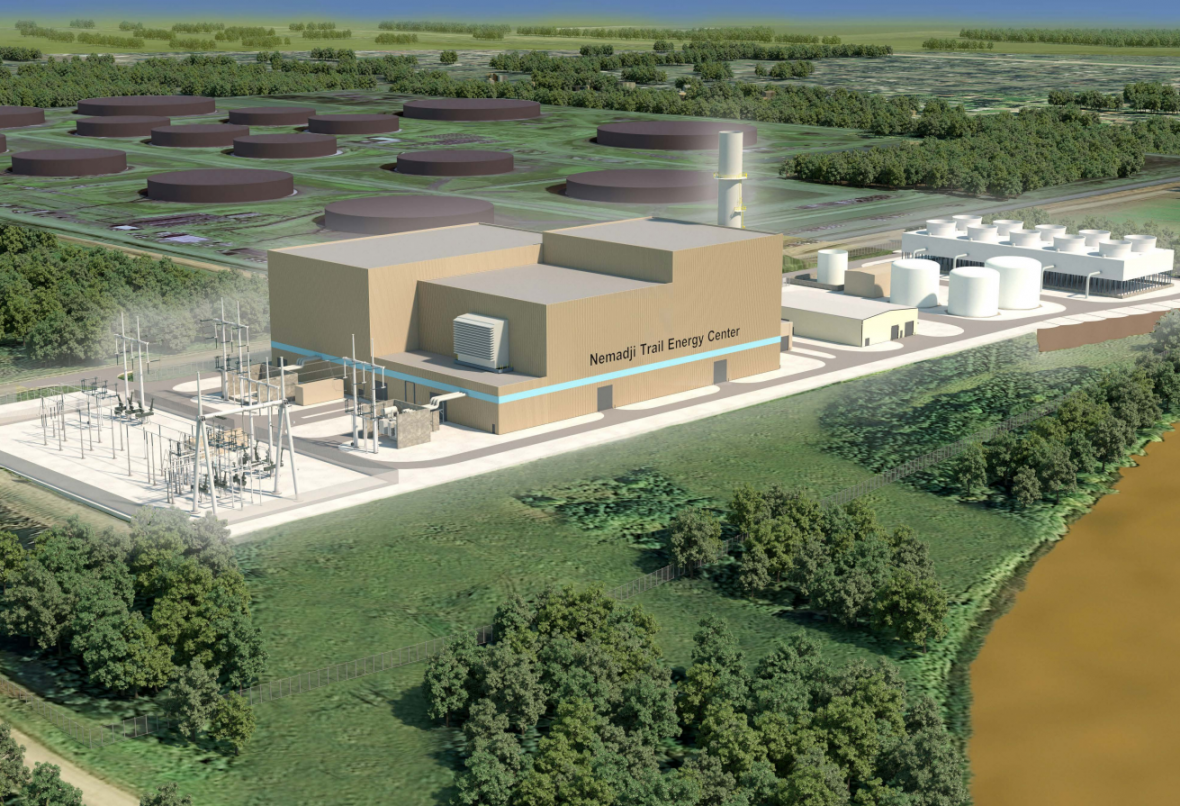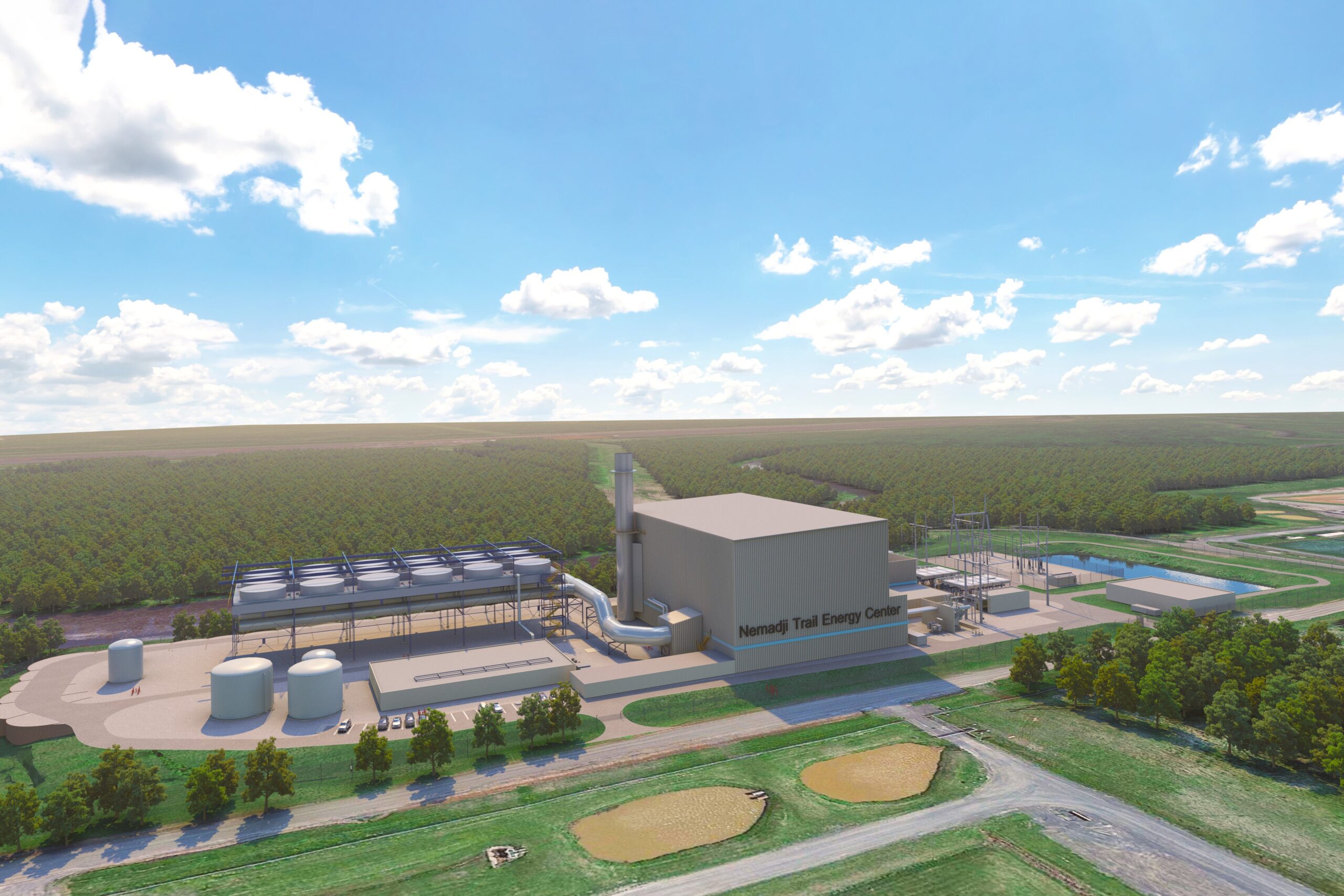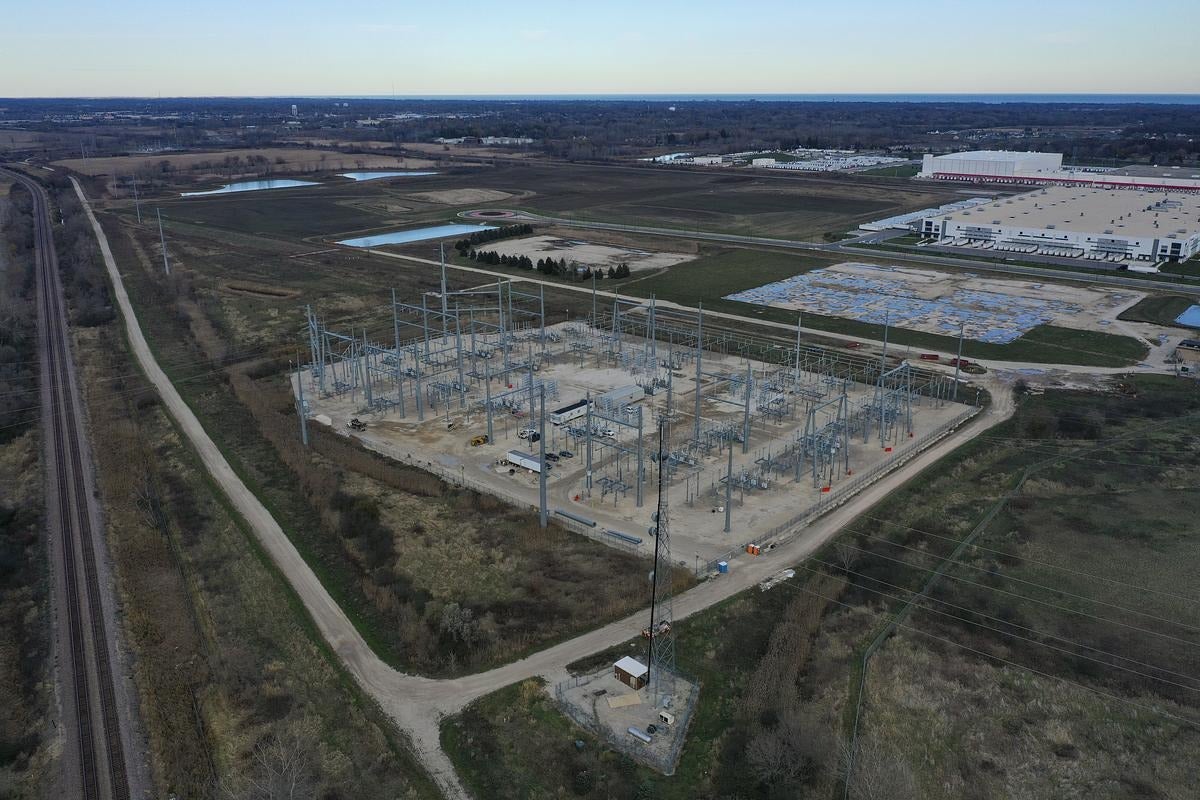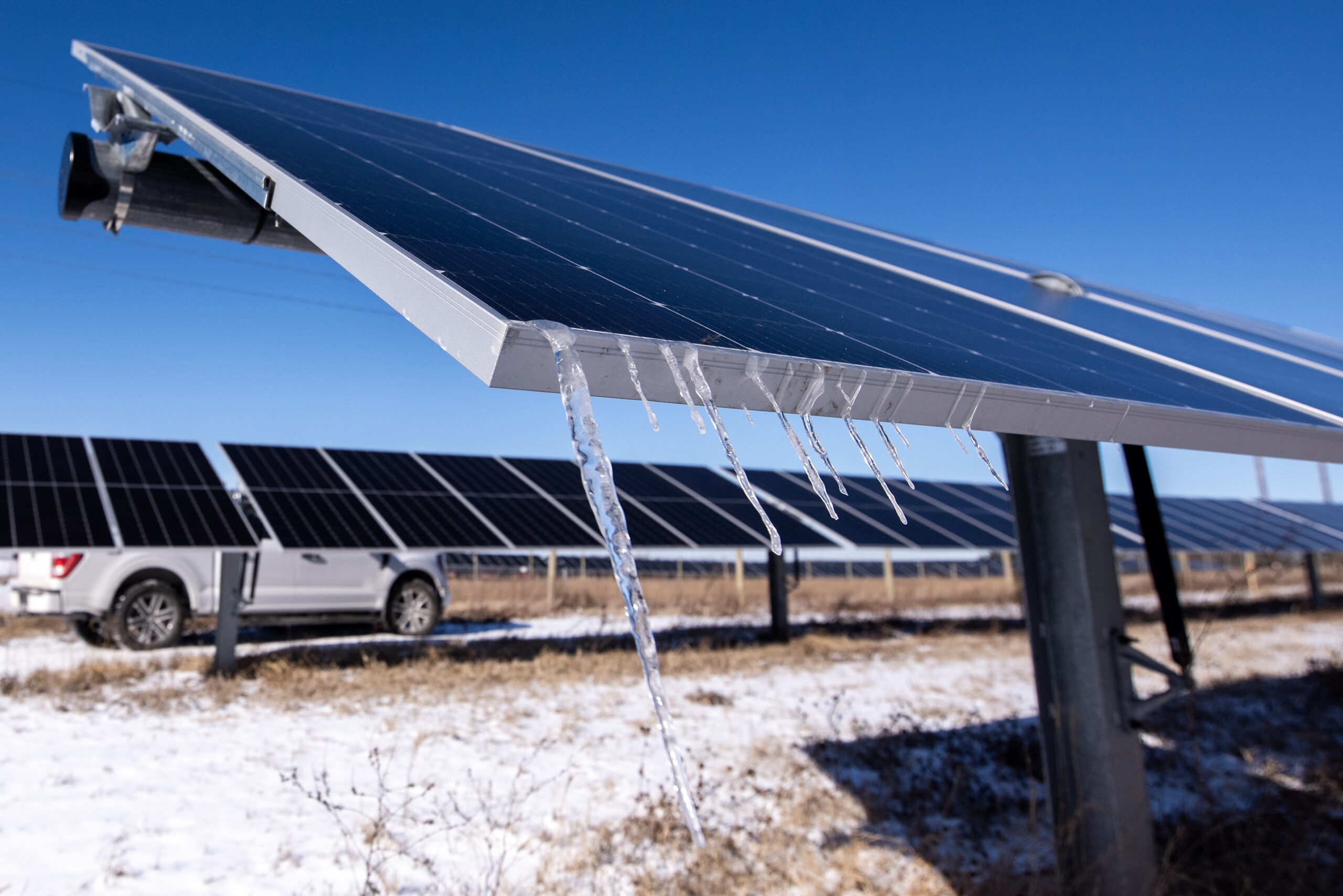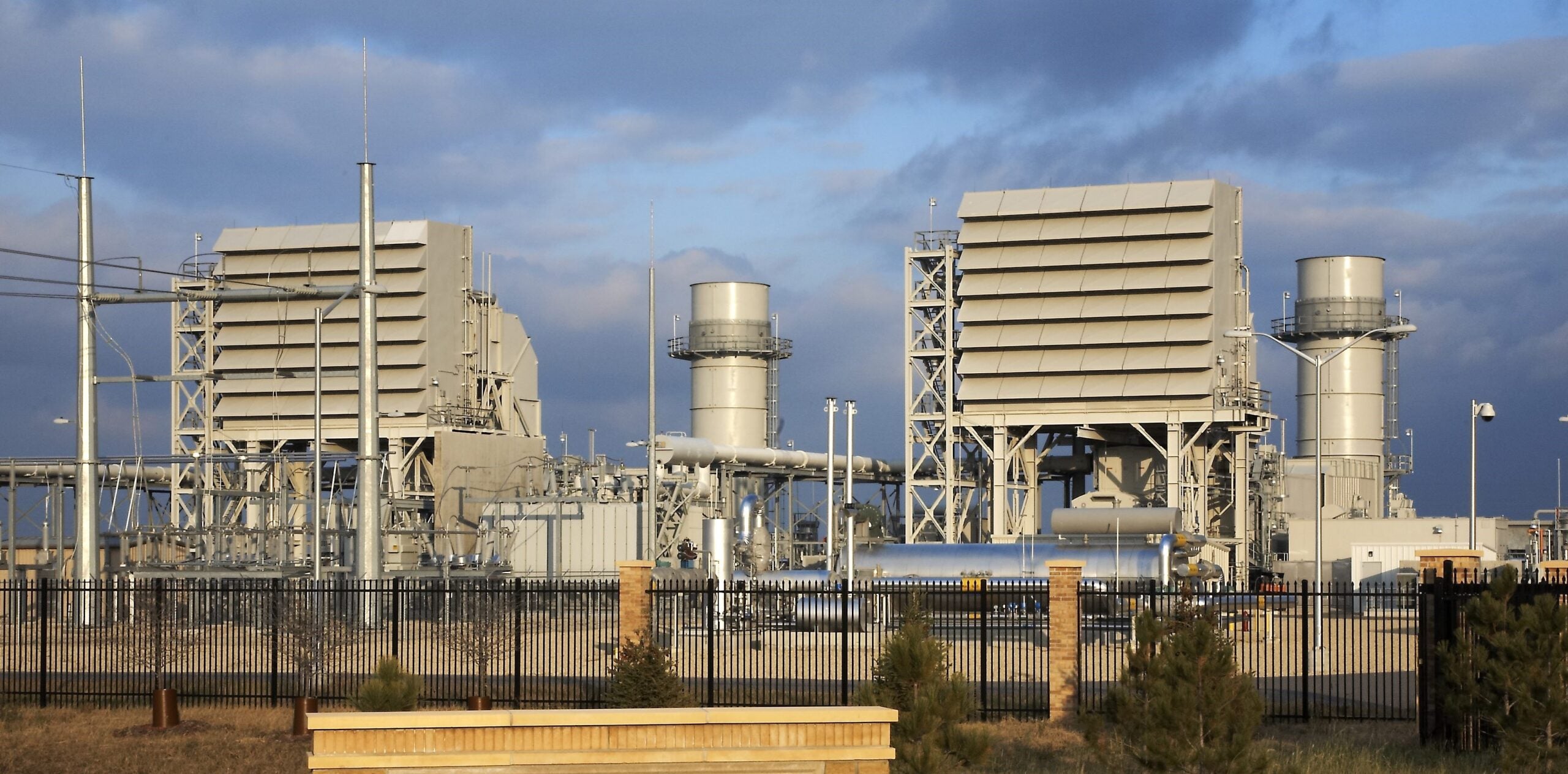State regulators have approved plans for a $700 million power plant in far northwestern Wisconsin.
The state Public Service Commission (PSC) voted 2-1 Thursday to approve a permit for La-Crossed based Dairyland Power Cooperative to build the plant in Superior.
An email from PSC spokesman Matt Sweeney said commissioners Mike Huebsch and Ellen Nowak voted in favor of the project while commission chair Rebecca Valcq voted against. Huebsch and Nowak were appointed by former Republican Gov. Scott Walker while Valcq was appointed by Gov. Tony Evers, a Democrat.
News with a little more humanity
WPR’s “Wisconsin Today” newsletter keeps you connected to the state you love without feeling overwhelmed. No paywall. No agenda. No corporate filter.
The Nemadji Trail Energy Center will produce 625 megawatts of power using natural gas.
The center will be jointly owned by Dairyland and Duluth, Minnesota-based Minnesota Power.
Minnesota Power Vice President of Strategy and Planning Julie Pierce told WPR the PSC approval was a “fantastic outcome.”
“And it really was this affirmation from the Wisconsin commission of how important this plant is to the reliability of the grid, to the Wisconsin state and the region as we transition to a cleaner energy future,” said Pierce.
She said Minnesota Power has retired seven of its nine coal burning power plants over the last eight years. Peirce said the company anticipates getting 50 percent of its total energy from renewable sources next year but the Nemadji Trail Energy Center is a vital to increasing reliability for the long term.
In late December the Minnesota Court of Appeals ordered the Minnesota Public Utilities Commission to review potential environmental impacts of the proposed power plant in Superior after signing off on the plan in 2018.
At the time a spokesperson for the PSC said the Minnesota case had no bearing on it’s review.
Pierce said the company is appealing the court decision to the Minnesota Supreme Court but in the meantime work in Wisconsin continues.
“So once it has all of its permits from the agencies, the DNR, the Corps of Engineers, etc. it’ll have the authority to be constructed,” said Pierce.
Dan Olson is a Superior City Council member who supports the project. He told WPR the project will be a boon for the local union contractors.
“It’s a good step forward and as far as for building trades, they’ve committed to a project labor agreement with the local building trades here,” said Olson. “So, we’ll have people in our community working on that project, union, making good wages to be able to support their families and health care and pensions and training and keeping the money right here in Superior.”
In an interview with WPR, Seirra Club Representative Matt Earley said the PSC approval of the project is deeply disappointing.
“Building a new frac gas plant is going to be an environmental and economic disaster if it happens,” Earley said. “It’s going to leave communities saddled with climate disrupting emissions and a really bad investment, both of which we’re going to be paying for for decades.”
Earley said his group and allies have raised concerns about the PSC declining to consider the full scope of the potential impacts the power plant will have on the earth’s climate. But he said beyond carbon dioxide emissions, the Sierra Club has also raised concerns the plant’s high-capacity wells, will have on groundwater and wetlands in the area.
“At this point Sierra Club and our allies are really looking at all of our options to stop this gas plant from being built,” Earley said. “We’re really committed to no more fossil fuels and no more fracked gas in Wisconsin.”
In October, the PSC released an environmental impact statement for the power plant proposal that said it would have “significant negative effects” on groundwater quantity at its current site. DNR hydrogeologist Ian Anderson said with information available at the time, “it does not appear that they have a water supply to meet their stated needs.”
Wisconsin Public Radio, © Copyright 2026, Board of Regents of the University of Wisconsin System and Wisconsin Educational Communications Board.

